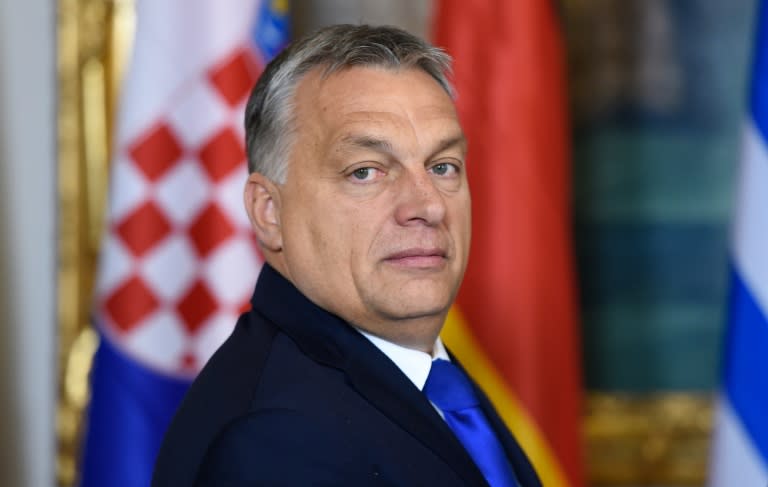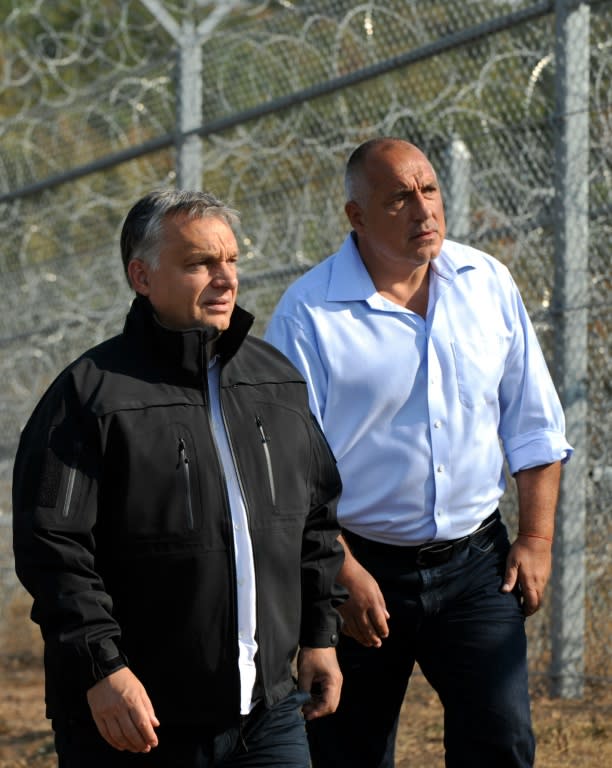'Viktator' Orban: liberal rebel turned populist strongman
In June 1989, a shaggy-haired Hungarian in his mid-twenties gave a rousing speech on Budapest's Hero square, telling the occupying Soviet forces to go home and demanding free elections. Almost 30 years later, Viktor Orban is Europe's standard-bearer for swelling opposition to German Chancellor Angela Merkel's "open-door" policy as the continent grapples with its worst migration since World War II. Nicknamed "Viktator", Orban has sealed Hungary's borders with barbed wire fences that his younger self had fought to tear down. And on Sunday he hopes to boost his growing clout with a national vote aimed at rejecting the EU's troubled migrant quota plan. "Europe is again under attack... We may one morning wake up and realise that we are in the minority," he thundered last autumn, as hundreds of thousands of people fleeing war and poverty trekked north in search of a new life in wealthy EU nations. Declaring Hungary a defender of "European Christian identity", the father-of-five recently warned migration was a "poison" that brought "terrorism" and crime into the bloc. "I have four daughters and I don't want my children to grow up in a world where something like Cologne can happen," he told German media in February, referring to a rash of sex attacks in the city of Cologne on New Year's Eve blamed mainly on North African men. Liberalism, the Oxford alumnus and fan of Donald Trump argues, has made Europe "rich but weak". Migrants must be pushed back -- "using force, if we have to" -- and deported to camps outside the EU, he says. - 'Citadel of power' - While rights groups find his hardline policies "appalling", they have paid off politically: Orban is Hungary's most popular prime minister, governing unhindered since 2010. Orban's charisma has also made him the voice of eastern and central European countries unhappy with the EU's decision-makers. "I regard him as the most talented and the most dangerous politician since 1989" in Europe, said Paul Lendvai, a Hungarian-born Austrian journalist and author of a new Orban biography. "He has built a citadel of power (by) perfecting his technique of seizing the initiative and overcoming opposition within his own party," Lendvai told AFP. Born in 1963 into a middle-class family, Orban grew up in a small village west of Budapest. His father, he revealed, was a "violent man" prone to beating his three children. "Sometimes I could hardly get up the next morning," Orban said in an interview in the 1980s. From an early age, the law graduate had two passions in life: football and politics. In 1988, he co-founded the Alliance of Young Democrats, or Fidesz, and became an MP two years later. By 1993, he ran Fidesz and ditched its radical youth image to forge in its place a potent centre-right force. Orban's ability to strike a chord with conservative voters saw him elected prime minister five years later, aged just 35. But the triumph was short-lived: Orban suffered two defeats at the hands of the Socialists in 2002 and 2006. Then the financial crisis hit, unleashing anger in Hungary at the government and the EU. A pragmatist, "Orban understood that the whole political climate in the EU had changed (and) things needed to be done differently.... Policies had to be based on national sovereignty," analyst Balazs Orban told AFP. Fidesz swept back into power with a two-thirds majority in 2010 and was re-elected in 2014. - More bark than bite - Orban's time in power has included controversial reforms ranging from a new constitution to the watering-down of the judiciary, and increased state control of the media. But his unorthodox economic policies, dubbed "Orbanomics", have also helped reduce Hungary's national debt. For all his tough talk, Orban's bark is at times worse than his bite. Hungary receives billions of euros (dollars) in EU aid and much of the tough talk against Brussels is aimed at voters at home, observers say. Orban is often seen bantering with EU President Jean-Claude Juncker who jokingly greeted him with "Hello, dictator" at an EU summit last year. "Behind closed doors, things are much more civilised," Austrian Chancellor Christian Kern quipped after another of Orban's anti-EU tirades at a recent EU gathering.





